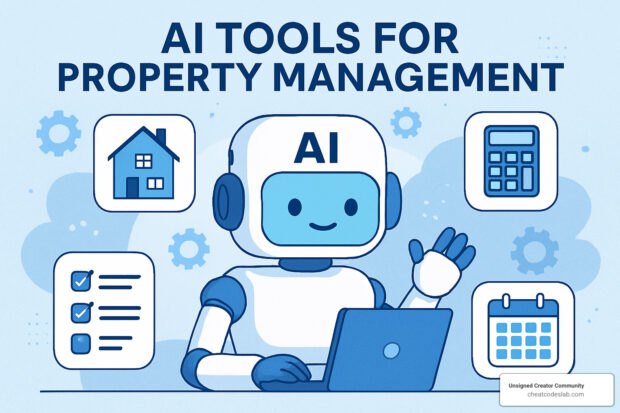
Advanced keyword research plays a crucial role in understanding your audience, optimizing your content, and ultimately ranking higher in search engines. For those looking for quick insights, here’s why it’s essential:
- Understand your audience: Find what topics and keywords resonate with them.
- Optimize your content: Select the right keywords to help your content rank higher.
- Business opportunities: Position yourself as a content marketing thought leader.
Investing time in advanced keyword research can set your brand apart by ensuring your content reaches the right audience.
I’m Jeffrey Castillo, also known as “Digitaljeff.” With over 20 years of experience in tech, digital media, and content strategy, my expertise in advanced keyword research has helped countless brands optimize their SEO efforts and content marketing strategies.
Now, let’s dive into how you can leverage these advanced techniques to improve your digital strategy.

Leveraging Market Insights
When it comes to advanced keyword research, leveraging market insights is crucial. Understanding the market landscape and using the right tools can make a significant difference in your SEO strategy.
Using Keyword Research Tools
Keyword research tools are essential for gaining market insights. These tools help you understand the keyword difficulty score, monthly traffic volume, and the overall landscape for specific keywords.
One powerful tool is the Organic Research Tool provided by CheatCodesLab. This tool allows you to:
- Identify high-traffic keywords: Find keywords that drive the most traffic.
- Analyze keyword difficulty: Understand how hard it is to rank for specific keywords.
- Monitor monthly traffic volume: Track how many searches a keyword gets each month.
For example, using the Organic Research Tool, you might find that the keyword “best travel destinations 2024” has a high search volume but moderate difficulty. This insight can help you decide whether to target this keyword in your content strategy.
Reverse Engineering Market Keywords
Reverse engineering market keywords involves analyzing keywords to find opportunities. Site Explorer provided by CheatCodesLab is a great tool for this purpose. It helps you uncover low-difficulty keywords and low-competition topics.
Here’s how to do it:
- Enter URLs: Use Site Explorer to analyze the top pages.
- Identify low-difficulty keywords: Look for keywords with a lower difficulty score but a decent search volume.
- Estimate monthly search visits: Check how many visits these keywords bring.
By reverse engineering, you can find keywords that have high potential but are not overly competitive. This strategy allows you to target niche topics that can drive significant traffic with less effort.
For instance, if you find that “eco-friendly travel tips” has relatively low competition, you can create content around this keyword to attract a similar audience.
Finding Untapped Keywords
Using Content Explorer Tools
To find uncommon keywords, start by looking beyond your direct competitors. Focus on partial competitors—those addressing similar pain points but not selling the same products or services. For instance, if you run a subscription-based fitness website, consider gym membership sites or fitness ecommerce websites as partial competitors.
Use a Content Explorer Tool to dive deep into these competitors’ websites. Here’s a simple process:
- Enter a broad topic relevant to your niche.
- Switch the search mode to “In title” to narrow down specific content.
- Filter pages published within the last 90 days to find fresh content.
- Filter for pages with an estimated 500+ monthly search visits to ensure relevance.
- Filter for pages on sites with a domain rating (DR) less than or equal to yours to find comparable competition.
By analyzing these pages, you can find keywords that are already generating traffic but might be overlooked by your main competitors.
Example: Searching for “protein” in the fitness niche could reveal a page about “top 20 highest protein nuts and seeds” with low competition, offering a valuable keyword opportunity.
Exploring Keyword Modifiers
Keyword modifiers are essential for advanced keyword research. They help you refine base keywords and uncover less competitive search terms. Modifiers can be anything from “best” to “near me” or specific years like “2023.”
To explore keyword modifiers:
- Identify a base keyword, such as “low carb.”
- Look at the top pages report. For instance, a site might rank for “low carb McDonald’s” and “low carb at Red Robin.”
- Use these modifiers (e.g., fast-food restaurant names) to find similar keywords.
Use a Keyword Research Tool like Ahrefs’ Keywords Explorer:
- Enter the base keyword.
- Go to the Matching terms report.
- Add popular modifiers to the “Include” filter.
This approach will yield dozens of low-competition topics.
Example: For the keyword “low carb,” adding modifiers like “McDonald’s” or “Red Robin” can help you find unique, low-competition keywords.
By combining these methods, you can find keyword clusters—groups of related keywords—that can collectively generate significant organic traffic.
Pro Tip: Always check the search results to ensure the modifier significantly changes the results. This ensures you’re targeting genuinely untapped keywords.
Advanced Keyword Research Techniques
Latent Semantic Indexing (LSI)
Latent Semantic Indexing (LSI) is a powerful technique to find related keywords that can improve your content’s relevance. LSI keywords are terms and phrases that are semantically related to your main keyword, often appearing together in top-ranking pages.
Using LSI keywords helps search engines understand the context of your content. For instance, if your seed keyword is “digital marketing,” LSI keywords might include “SEO,” “content marketing,” and “social media strategies.”
Pro Tip: Use keyword research tools like SEMrush to find LSI keywords. They can segment these related words into subtopics, making it easier to integrate them into your content.
Filtering by Intent and Competition
Understanding keyword intent is crucial for targeting the right audience. There are four main types of keyword intent:
- Informational: Users seek information (e.g., “What is digital marketing?”)
- Commercial: Users compare products or services (e.g., “Best digital marketing tools”)
- Navigational: Users look for specific websites (e.g., “HubSpot blog”)
- Transactional: Users intend to make a purchase (e.g., “Buy digital marketing course”)
Pro Tip: Filter keywords by intent using tools like Google Ads. Look for the highest top-of-page bid to identify commercial keywords competitors are bidding on.
Filtering by competition helps you find keywords that you can rank for more easily. Tools like SEMrush provide a keyword difficulty score, showing how hard it is to rank for a given keyword. Targeting lower-competition keywords can yield quicker wins.
Using Question Phrases
Incorporating question phrases into your content can significantly boost your rankings, especially for long-form and evergreen content. Questions often align with users’ search intent and can serve as excellent subtopics or standalone posts.
Use tools like SEMrush to filter keywords by question phrases. For example, if your seed keyword is “content marketing,” related questions might include “How to start content marketing?” or “What are the benefits of content marketing?”
Don’t forget to check Google SERPs for additional question ideas. Google’s “People also ask” section can provide valuable insights into what users are searching for.
Pro Tip: Answering these questions thoroughly in your content can also help you capture featured snippets on Google, driving more organic traffic.
By leveraging LSI keywords, filtering by intent and competition, and using question phrases, you can create a robust keyword strategy that drives traffic and meets user needs.
Next, we’ll explore how to use Google Tools for Keyword Research to further improve your strategy.
Utilizing Google Tools for Keyword Research
To stay ahead in the SEO game, you need to leverage Google’s arsenal of tools for advanced keyword research. These tools help you find untapped opportunities, understand search trends, and optimize your content for maximum visibility.
Google Trends for Seasonal Keywords
Google Trends is an invaluable tool for identifying seasonal keywords. It shows you how search interest for a keyword changes over time.
For instance, searches for “sunscreen” spike every late May and early June.
Why use Google Trends?
- Seasonal Fluctuations: Tailor your content and ad campaigns to align with seasonal spikes.
- Seasonal Preferences: Adjust your offerings based on what’s trending during specific times of the year.
- International Growth: Spot trends in different regions and customize your strategy accordingly.
Pro Tip: Start preparing your content in advance to coincide with peak search times. This ensures your website is ready when the interest is highest.
Google Search Console for Uncovered Queries
Google Search Console provides a wealth of data through its Performance Report. This report shows the keywords your website is already ranking for, including those with high impressions but low clicks.
Why use Google Search Console?
- Uncover Search Queries: Identify keywords that have high impressions but low clicks. This indicates potential content gaps.
- Search Intent: Understand what users are looking for and create content that meets their needs.
- Competition Level: Gauge the competition for specific keywords and find low-hanging fruit.
Example: If you see impressions for “brand A vs brand B,” but no clicks, you can create a dedicated comparison page to capture this traffic.
Pro Tip: Use the Queries section to find keywords with high impressions but low relevance to your current content. Create new pages targeting these keywords to improve your visibility.
Google Keyword Planner for Keyword Ideas
Google Keyword Planner is a go-to tool for finding keyword ideas and understanding their search volume, competition, and cost-per-click (CPC).
Why use Google Keyword Planner?
- Search Volume: Find the average number of monthly searches for a keyword.
- Competition Level: See how competitive a keyword is.
- CPC Estimates: Get an idea of the cost to bid on a keyword if you’re running paid ads.
Pro Tip: Even if you’re not running Google Ads, Keyword Planner can give you valuable insights into which keywords to target organically.
Site Search Data for Audience Insights
Analyzing your website’s internal site search data can provide direct insights into what your audience is looking for.
Why use site search data?
- User Intent: Understand what your visitors are searching for on your site.
- Content Gaps: Identify areas where your site may be lacking information.
- User Experience: Improve navigation and content findy based on search queries.
Pro Tip: Set up site search tracking in Google Analytics to monitor and analyze search terms used by your visitors.
Trending Topics for Content Ideas
Keep an eye on trending topics using tools like Google Trends and the Realtime Search Trends section. This helps you stay ahead of the curve and create content around emerging trends.
Example: When Google’s SGE was just starting to trend, creating content around it helped capture a significant increase in organic traffic.
Pro Tip: Regularly check trending topics to find new content ideas that can attract massive traffic to your website.
By leveraging Google Trends, Google Search Console, Google Keyword Planner, and site search data, you can uncover valuable insights, optimize your content, and stay ahead in the competitive SEO landscape.
Next, we’ll dive into Advanced Keyword Research Tools to further improve your keyword strategy.
Advanced Keyword Research Tools
Keyword Explorer
Keyword Explorer is a powerful tool that simplifies advanced keyword research. It offers a range of metrics to help you choose the best keywords for your content strategy. One standout feature is the Priority Score, which combines search volume, keyword difficulty, and click-through rates to highlight the most promising keywords.
Pros of Keyword Explorer:
– Keyword Suggestions: Get a variety of keyword ideas to expand your content.
– Search Volume: See how often a keyword is searched, which helps gauge its popularity.
– Keyword Difficulty: Understand how tough it is to rank for a keyword.
– Competitive Analysis: Compare your keywords with competitors to spot opportunities.
Example: CheatCodesLab’s Keyword Explorer provides a Priority Score to help you find keyword opportunities without getting bogged down in numbers.
User Intent Analysis Tools
Understanding the intent behind a search query is crucial for creating relevant content. User intent analysis tools help you identify whether a keyword’s intent is informational, commercial, navigational, or transactional.
Benefits:
– Keyword Suggestions: Tools like CheatCodesLab offer keyword suggestions based on user intent.
– Search Trends: Track how search intents change over time.
– Keyword Difficulty: Assess how hard it is to rank for specific intents.
– Cost-Per-Click (CPC): See the advertising cost for keywords, useful for PPC campaigns.
Example: CheatCodesLab provides a detailed competitive analysis, including MozRank, page authority, domain authority, and backlinks.
Keyword Tracking Tools
Keeping an eye on your keywords over time is essential. Keyword tracking tools help you monitor your rankings, keyword difficulty, and the backlinks pointing to your pages.
Features:
– Keyword Ideas: Find new keywords that can boost your rankings.
– Search Engines: Track rankings across multiple search engines like Google, Bing, and Yahoo.
– Keyword Difficulty: Monitor how the difficulty of keywords changes over time.
– Backlinks: Check the referring domains that link to your content.
Example: CheatCodesLab’s TopicRanker helps you find less competitive keywords and identifies weaknesses in top-ranking pages, making it easier to surpass your competitors.
Frequently Asked Questions about Advanced Keyword Research
What is advanced keyword search?
Advanced keyword search involves using sophisticated techniques and tools to understand not just what keywords people are searching for, but also the context and intent behind those searches. This goes beyond simple keyword identification to include:
- Audience insights: Learning what your audience is interested in and what drives their searches.
- Traffic and buzz: Identifying which topics and keywords generate the most interest and engagement.
- Optimizing content: Selecting the right keywords to improve your content’s visibility and relevance in search engines.
- Ranking higher: Using these insights to improve your search engine rankings and attract more visitors.
What is comprehensive keyword research?
Comprehensive keyword research is the process of finding and analyzing relevant searches to create content that ranks high on search engines. This involves several steps:
- Finding relevant searches: Using tools like Google Keyword Planner and Ahrefs to identify keywords your target audience is using.
- Analyzing keyword data: Looking at search volume, keyword difficulty, and competition to prioritize which keywords to target.
- Creating high-ranking content: Developing content that addresses these keywords effectively, ensuring it meets the needs and interests of your audience.
What is an example of keyword research?
Consider a local business like a coffee shop looking to attract more customers through search engines. Here’s how they might use keyword research:
- Identify specific keywords: Use tools to find keywords like “best coffee shop in [city]” or “organic coffee near me.”
- Analyze search volume and competition: Check how often these keywords are searched and how competitive they are.
- Create optimized content: Write blog posts, create landing pages, or produce videos that target these keywords.
- Rank higher in local search results: By optimizing their content for these specific keywords, the coffee shop can improve its visibility and attract more local customers.
By understanding and implementing these advanced keyword research techniques, businesses can better reach their target audience, drive traffic, and ultimately achieve higher search engine rankings.
Conclusion
Advanced keyword research is essential for any successful SEO strategy. It helps you understand your audience better, optimize your content for higher search engine rankings, and stay ahead of the competition.
At CheatCodesLab.com, we love providing you with the best tools and strategies to lift your content marketing efforts.
By leveraging advanced keyword research, you can create content that not only attracts but also engages your audience. This involves understanding keyword intent, using LSI keywords, and filtering by competition. These techniques ensure that your content is both relevant and valuable to your readers.
Our SEO solutions are designed to help you steer the complexities of keyword research. From using Google Trends to identify seasonal keywords to employing Google Search Console for uncovering hidden queries, we offer a comprehensive suite of tools to improve your keyword strategy.
The goal is not just to rank higher but to provide meaningful and useful content to your audience. This user-centric approach will not only improve your search engine rankings but also establish you as a thought leader in your industry.
For more tips and advanced strategies, check out our SEO-ready services. Let’s take your content marketing to the next level!
By mastering these advanced keyword research techniques, you can open up new opportunities for your business, attract a broader audience, and achieve sustained growth.













